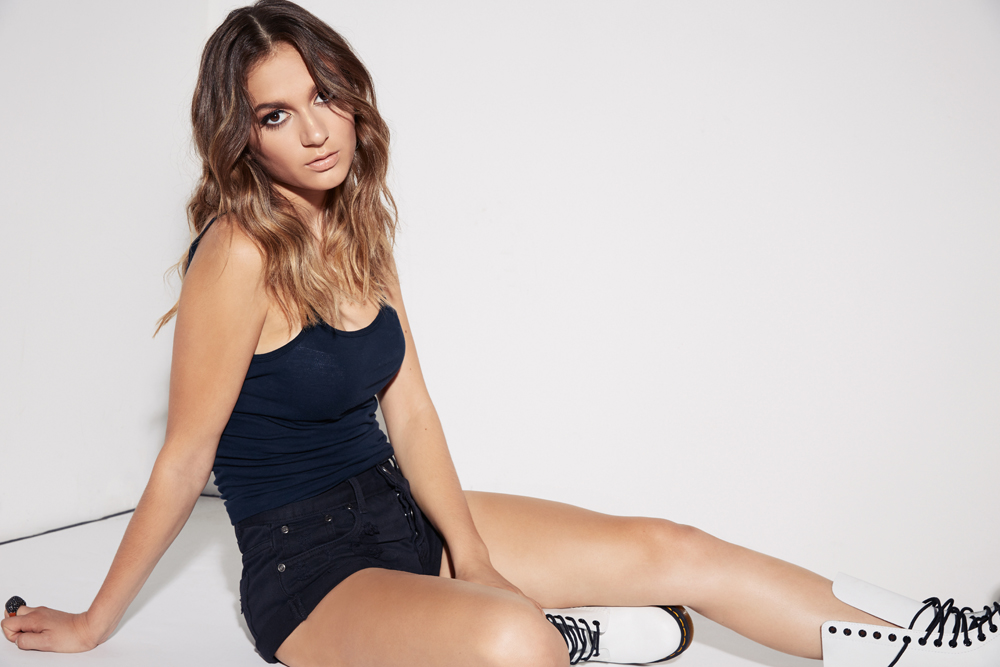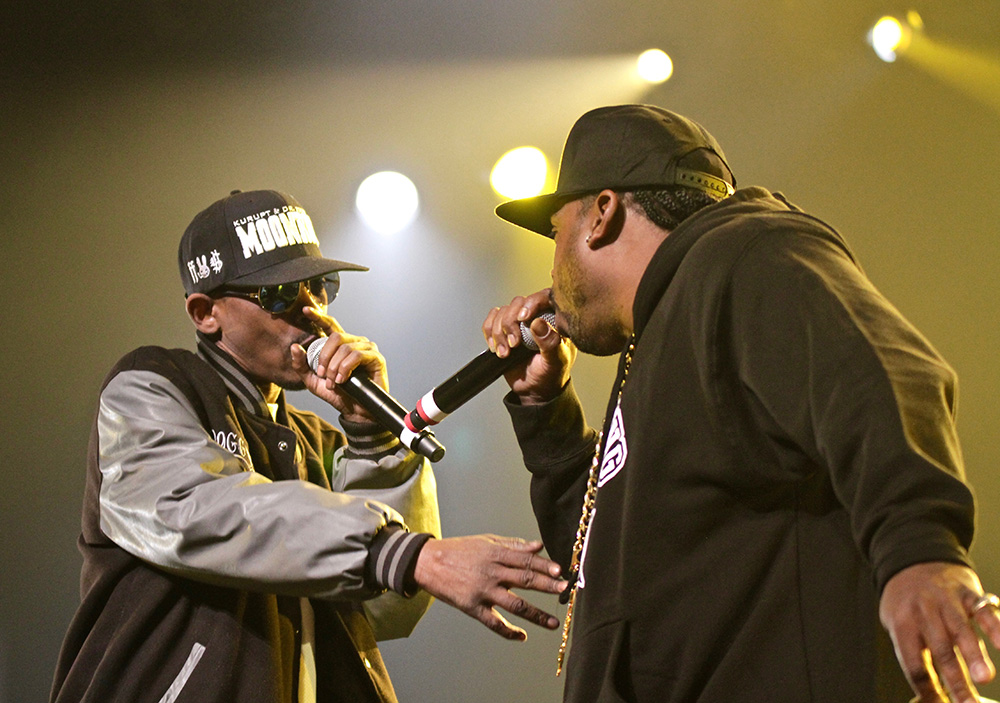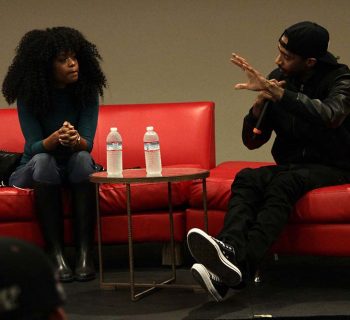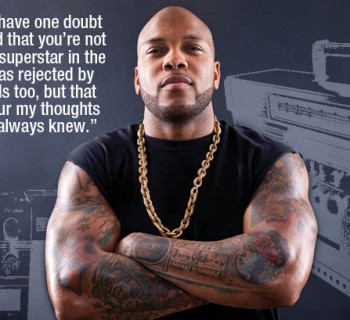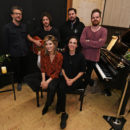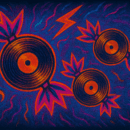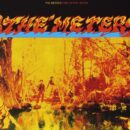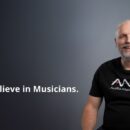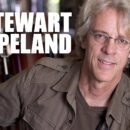With a much-lauded solo release, Malibu, multiple tracks vocalizing on Dr. Dre’s Grammy-nominated No. 1 R&B/hip-hop collection, Compton, and a collaboration with producer Knxwledge called NxWorries on a joint project, Yes Lawd, this year the stars have aligned magnificently for Anderson .Paak.
As in most breakthrough tales, there is a tumultuous backstory; almost a decade of scuffling for the 30-year-old Oxnard, CA-born vocalist, rapper, drummer, songwriter, producer and artist as he acquired a blazing arsenal of musical skills. For this exclusive interview, MC caught up with Anderson .Paak who is just off the road after long months of touring with his band, the Free Nationals. He is, as he explains, “Back home, my man. In L.A. Koreatown, USA.”
Photos by Sarah Kjelleren
Music Connection: You have been on this journey for close to a decade, but these past 12 months have certainly drawn a lot of attention to you and your music. Does it seem like it is all finally coming together?
Anderson .Paak: This has definitely been the best year of my career. But I still feel like I’ve got a ways to go. I am still pretty much an underdog, but it’s been getting better every year. Sometimes you’ve to keep doing what you’re doing and the world will catch up, things will come full circle and hard work will pay off. Yeah, I’m happy.
MC: There is a line in your song “The Bird” from Malibu that says, “I learned my lessons from the ancient rules/I choose to follow what the greatest do.” Who do you consider the greatest that you follow?
.Paak: People like Jimi Hendrix and Miles Davis; Tupac and Biggy; JT, Kanye and Taylor Swift.
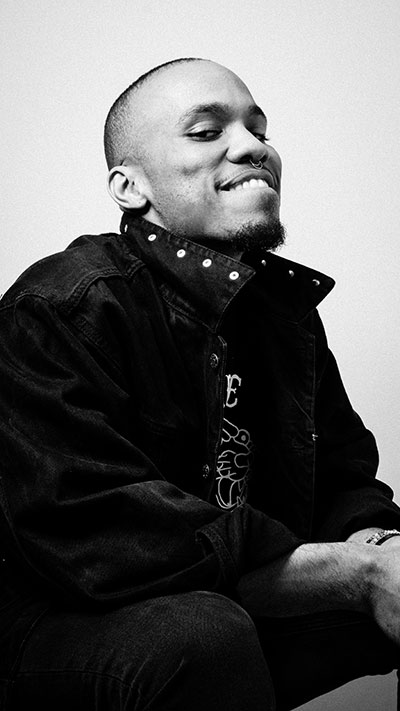 MC: Your vocal tone reveals echoes of classic soul singers. Who did you hear when you were growing up?
MC: Your vocal tone reveals echoes of classic soul singers. Who did you hear when you were growing up?
.Paak: Bobby Womack, Otis Redding, Sam Cooke, those are all big, but coming up in the house there was a lot of Al Greene and Curtis Mayfield. My mom would be playing Teddy Pendergrass singing with Harold Melvin and the Blue Notes. When I was young I was scared of their vocal sound. I’d be like, “Why are they yelling like that?” I’d want her to turn it down. But it stuck with me and resonated. When I was doing my album Malibu I went back and studied a lot of artists from the ‘60s. It’s probably my favorite era of music.
MC: Your vocals reveal a deep connection to what many of the singers you reference also have: a background in the church.
.Paak: It was my first schooling. Some people have formal training, but I started playing in a Baptist church when I was 11 or 12. I learned how to follow. It’s something you can’t really teach. You have to go in and experience it. And to play within the choir there’s a lot of following the leader and a lot of listening. Your musical reflexes get on point.
Gospel music is very advanced, dealing with a lot of time changes in one song. It’s good energy––funk, soul and jazz and all that stuff. Some of the best musicians and singers in the world come out of the church. It’s a big part of my music, even without knowing it. It’s the foundation.
MC: In between the songs on Malibu, there are spoken-word segments that act as connecting interludes. Where do these voices come from and who is speaking?
.Paak: My buddy Kelsey Gonzalez, who plays bass in the Free Nationals, he and Matt “Callum Connor” Merisola are the ones in the band who surf. When I was done with this album, and also Venice (the previous collection), when we’re in the mastering process is when we’re figuring out how to put the sequence together, and blend certain songs and make it feel like a cohesive album. Kelsey was a big part of coming up with the idea and he provided a lot of different quotes from big surfers like Mike Doyle and different surf movies from the ‘50s and ‘60s. He had a bunch of them, so I played them and picked out the lines that felt good. It helped bridge the album together and give it a theme.
MC: How does surfing relate to music?
.Paak: I like in surfing culture how it’s hard to catch a wave. So if you catch one, you’ve got to enjoy it and ride it out. And remember how it is so you can catch the next one. I feel like that’s a good thing with life and just with my whole career. I’ve been out here paddling, and it seems the past couple of years I’ve been able to catch a wave. I want to enjoy it and take it in. It’s a metaphor for life.
MC: How essential was it to develop your audience in Southern California as your career evolved?
.Paak: A lot of people think that there are shortcuts or that they can go around building a grassroots following. I don’t know if those careers really last all of the time. I didn’t have anything better to do other than to devote time to my craft. I put years into it and every year I got more and more believers. I always thought it was important to get the people in this city on my back before anything else. I couldn’t have done anything without having those believers supporting me.
MC: We note that among the credits in your career is a stint drumming for American Idol contender Haley Reinhart, but you were always highly visible, albeit in underground scenes in Los Angeles. Your O.B.E. Vol. 1 in 2012 and Cover Art, the EP of folk and rock classics molded into modern R&B set the stage, but you appeared on tracks for the Korean-American rapper Dumbfounded, the producer Tokimonsta and produced tracks and guested on Watsky’s All You Can Do. Was creating alliances with other artists within a creative community an equally significant step?
.Paak: It’s a big part of my story. With Sa-Ra Creative Partners, the Low End Theory people, Hellfyre Club and Nocando, the whole Project Globe family, Dumbfoundead and Wax, all of these people were the first ones to say, “Yo, we feel what you’re doing. You can go on tour with us. You can use our studio. You can use our network of people. We are going to pump you up.” Nobody else was doing it. These people were doing it. It’s very important, and I think it should be important with a lot of artists. It’s a traditional thing with a lot of artists coming up in Southern California, building a team around you.
At the end of the day it’s like these are gatekeepers. That’s the reason I do it. When I wanted to make music it was about getting the respect of the people I looked up to. Everything else follows. When I was able to work with some of these people it was bigger than anything else that meant everything, more than a check.

